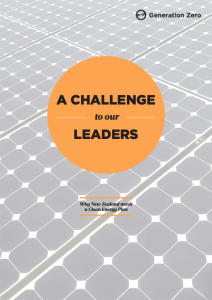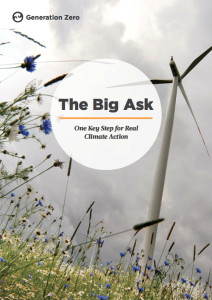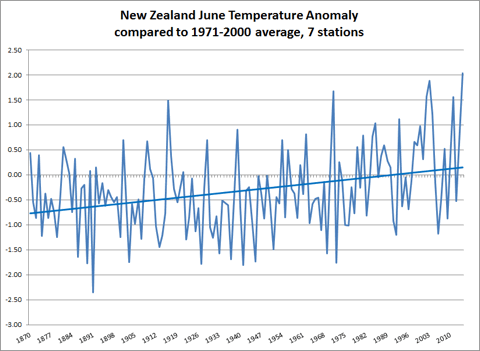This guest post is by Paul Young of Generation Zero.
Last Thursday Generation Zero released our new report, The Big Ask. This was the follow-up to our earlier report A Challenge to Our Leaders, released in May. While we’re calling it the Big Ask, it shouldn’t actually be a big deal. All we’re really asking for is a plan to do what the Government has promised to do.
Challenge laid out a fundamental problem with New Zealand’s current climate change response: we might have some nice-sounding targets for reducing our carbon emissions, but we have no credible plan for how we will achieve them. Politicians and policy-makers carry on as if the targets don’t exist; as if business as usual is still a viable option.
The simplest way to demonstrate this is by the Government’s official emissions projections, which Challenge unearthed and shone a light on. Under current policies, NZ’s emissions are expected to continue growing on every possible measure. In fact, the Government’s own figures show the current response is virtually indistinguishable from business as usual (read: doing absolutely nothing).
The national targets established by the current Government are to reduce net greenhouse gas emissions (including forestry) in 2020 to 5% below what gross emissions were in 1990, and 50% below this by 2050. These latest projections say net emissions in 2020 will be 26% above the 1990 gross emissions level and rising.
Jargon and accounting vaguaries aside, this is an epic fail.
The problem is two-fold: not only is there no plan to meet our current targets, these targets are also too weak for the global goal of keeping warming under 2°C. In Challenge we argue from IPCC science that NZ should aim for zero fossil carbon emissions in 2050 alongside reductions in agricultural emissions.
Continue reading “Generation Zero issues Big Ask to leaders”




 Late last week, New Zealand’s far right ACT party was pleased
Late last week, New Zealand’s far right ACT party was pleased  Science historians Naomi Oreskes and Erik Conway, co-authors of the acclaimed
Science historians Naomi Oreskes and Erik Conway, co-authors of the acclaimed  In this week’s article at The Daily Blog —
In this week’s article at The Daily Blog — 
You must be logged in to post a comment.